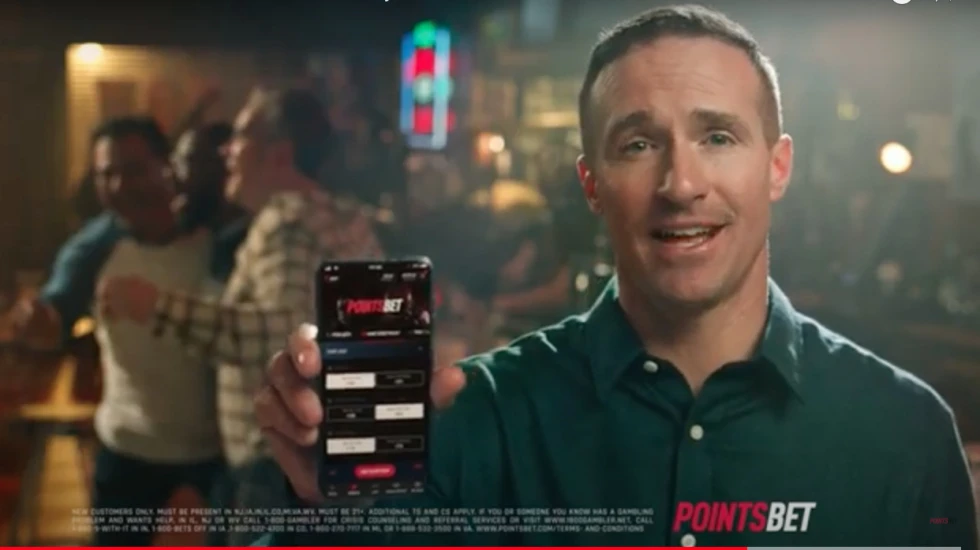
You don’t need to watch anywhere near as much sports on television as I do to have gotten the message that former Saints quarterback Drew Brees wants you to “live your bet life,” which I gather is something like living your best life, only more exciting because you’ve got money riding on it.
Brees replaced a spokeswoman for the same sports betting app who suggested we all could “make it rain” cash from the sky if we signed up for “risk-free bets,” which seems terribly generous.
Then, there are those mesmerizing commercials with Caesar and Cleopatra (J.B. Smoove and Halle Berry) that hardly mention betting at all but assure us that “we are all Caesars,” which looks like a lot of fun, whatever it means.
Would this be an opportune time to mention that March is Problem Gambling Awareness Month?
Probably not, especially with this being the weekend of the NCAA Final Four and more wall-to-wall gambling commercials headed our way. But you’ll have to forgive me for being a wet blanket. I see a need for some counter-programming.
Don’t worry. I’m not going to proselytize against the evils of gambling. That ship has sailed. Our government now depends on funding from the gambling industry. We’re committed.
But it never hurts to offer a gentle reminder that, for some, gambling can be very destructive and that there are places to go for help.
Anita Pindiur sees the aftermath of problem gambling as the executive director of the Way Back Inn, which operates an outpatient treatment program in Maywood and Oak Park for problem gamblers. State funding allows the program to offer treatment at no cost to most people, she said.
Even then, most of those coming for treatment already have lost their jobs, their housing or personal relationships because of the financial and other problems created by their gambling addiction.
Like others who deal with problem gamblers, Pindiur has seen an uptick in people needing help since the legalization of sports betting, just as there was an uptick after the proliferation of video gambling machines.
“The disorder itself is you’re craving that action. It’s not so much about the win. It’s the action,” she says.
Pindiur has seen people who have racked up as much as $600,000 in gambling debts and have embezzled from their employers to feed their habit. But even smaller losses can be a sign of a problem.
“This isn’t because anybody is a bad person or doesn’t have willpower,” Pindiur says.
An estimated 2% to 4% of people exposed to gambling will develop a problem with it, says Bill Johnson, administrator of the Illinois Council on Problem Gambling.
One way to look at that is that at least 96% of the population will gamble safely with no danger of falling into the type of addictive behaviors that characterize problem gambling. So have fun.
The other perspective is that, with more and more people being exposed to gambling, even 2% becomes “a lot of people,” as pointed out by a recovering gambler active in Gamblers Anonymous named Brian, who asked me not to use his full name.
Like everyone I interviewed for this story, Brian makes it clear he takes no position on legalized gambling. He says his interest is in making sure that every gambler understands this: “There is a way to get this out of your life and take away the misery.”
Gamblers Anonymous operates a 12-step program with group meetings similar to other addiction recovery programs. You can find a GA meeting by calling the toll-free (888) 548-2790 hotline or online at www.gamblersanonymous.org.
There are other options. People might have noticed the 1-800-GAMBLER hotline number that’s squeezed in at the end of some of the gambling commercials. That will connect you to a trained counselor who can make a referral.
There’s also the weknowthefeeling.org website, which has been running commercials to reach problem gamblers.
Many who call have reached the crisis stage.
Johnson says problem gambling has the highest suicide rate of any addiction disorder.
Brian says he has known seven problem gamblers who have killed themselves.
Not everyone was intended to live their bet life.







